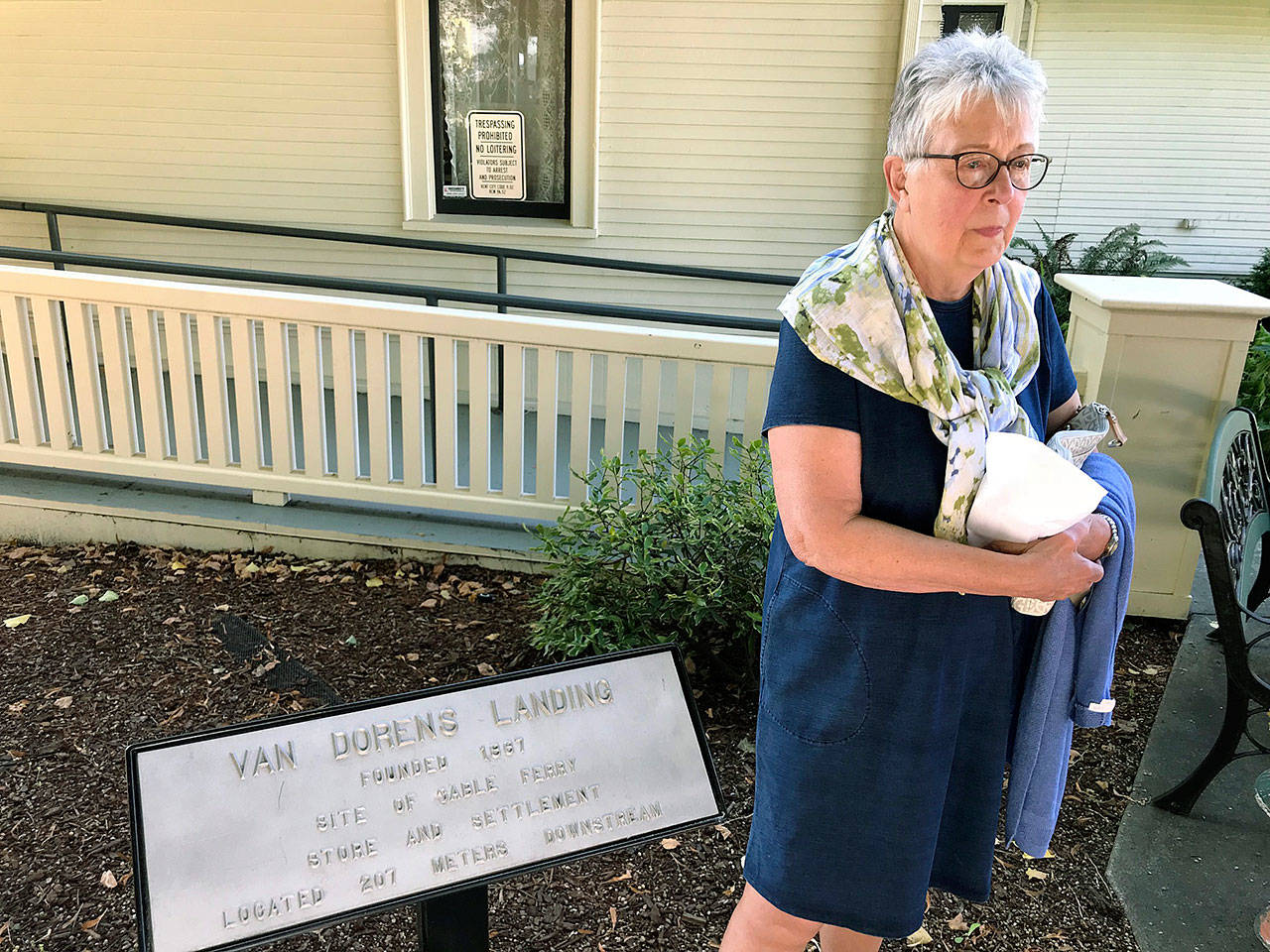Long before gravel roads and asphalt highways, the Green River was the valley freeway – a suitable, bustling route of choice for boats and ferries to move people and product.
Pioneers of the 1860s and ’70s coveted the river, establishing small port-like boat landings along its winding reach through the heart of a fertile, agricultural valley. As many as 16 riverboats drifted up and down the river at one time, historians say, along with the occasional canoe and pole-driven scow.
The landings were important places, connecting communities with the outside world, a portal where goods were shipped out and brought in and where mail was delivered. Many of the landings supported a cable ferry crossing, an important service since there were no bridges across the river at the time, and Military Road represented the area’s only significant route connecting north and south.
Recognizing the importance of such a waterway system, local volunteers, members of the Greater Kent Historical Society (GKHS) and city leaders came together on Sept. 19 to dedicate a new outdoor exhibit installation commemorating the historic landings along the Green River.
The display features eight elevated, restored plaques explaining the historic monument sites, positioned north to south, just as the landings geographically functioned more than 160 years ago. The river landings exhibit rests in a mostly shaded area next to the Kent Historical Museum, 855 E. Smith St., for guests to visit and study.
“It’s a wonderful asset to this community and museum,” said Nancy Simpson, city Landmarks Commissioner, who led the effort to complete the project. “It tells people what represented the riverboat landings on the Green River.
“We thought that we could still – after all these years – show these,” she said. “The river has since changed so dramatically. … Anything we could do to talk about the history of the community is a good thing.”
The landmarks have a history of their own. A group known as the Citizens Band for Common Courtesy, the city of Kent, and the Army Corps of Engineers first recognized the landmarks in 1976. Memorial plaques were placed at each location along the river as a way to commemorate the country’s bicentennial. But over time, with levee changes and development, the plaques weathered. Some were vandalized.
Volunteers and those dear to local history decided to step in, help retrieve, restore and preserve the markings, eventually moving all of them to museum grounds for safekeeping. Volunteer muscle, expertise and money were donated to make the project possible.
Industry Sign & Graphics of Auburn mastered the plaques. The Fab Shop of Edgewood performed the metal postings.
“It’s important. It’s history, the history of Kent,” said Tom Baines, a longtime resident and volunteer who worked on the project.
Each plaque represents a landing and its pioneer, bearing such names as Van Doren, Neely, Downey, Langston, Saar and Alvord.
According to the GKHS:
“A mile north of Kent on Russell Road, between 228th and 212th now, was Maddocksville where Cornelius Van Doren had his home, farm, store, ferry and riverboat dock. It was known as Van Doren’s Landing. West of Kent was David Neely’s landing, Langston’s Landing was at the west end of Willis Street in Kent, and about a quarter-mile south of Kent was Thomas Alvord’s landing, and the usual end of the journey upriver from Seattle. A short ways up river from Alvord’s Landing were some rapids only a few captains would try to navigate in high water.”
Other landings, including the most southerly outpost, Fort Thomas, are described.
As Mayor Dana Ralph reminded those at the dedication ceremony, Kent has a rich history and it needs to be represented and told.
“And the fact that we have such an amazing group of volunteers dedicated to preserving that history could not make me prouder,” she said.
Talk to us
Please share your story tips by emailing editor@kentreporter.com.
To share your opinion for publication, submit a letter through our website https://www.kentreporter.com/submit-letter/. Include your name, address and daytime phone number. (We’ll only publish your name and hometown.) Please keep letters to 300 words or less.

